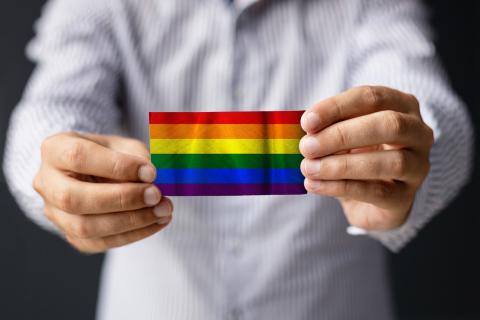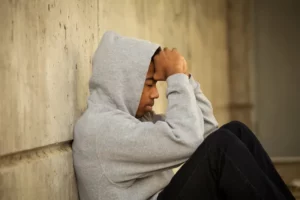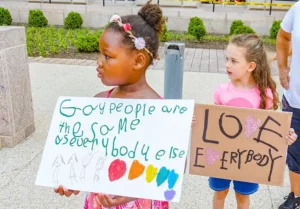The acronym of the term “LGBT+” stands for lesbian, gay, bisexual, transgender, and queer. It is used as a way to include all of the variations that exist in the community of people who don’t identify as heterosexual or cisgender. The acronym can also include those who identify as intersex and asexual.
Contents
Understanding LGBT
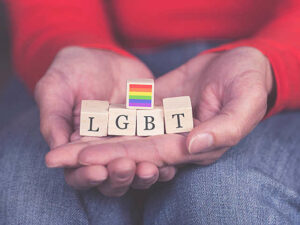
The LGBT community faces many issues in today’s society. Some of these issues are discrimination, bullying, and violence. For example, in the United States National Transgender Discrimination Survey Report (NTDS), it was found that 22% of transgender individuals had experienced job termination due to bias. The NTDS also found that 78% of respondents who were out or perceived as LGBT reported having been verbally harassed at work because of their sexual orientation or gender identity.
LGBT people are discriminated against at school, work, and in public. There is a lack of awareness about the issues LGBT people face. However, there are many organizations that focus on helping LGBT people overcome these challenges. These organizations have done great work to help LGBT individuals become more accepted by society.
The National Center for Transgender Equality (NCTE) is one organization working to improve the lives of transgender individuals through advocacy, education, outreach, and empowerment programs directed towards trans adults as well as youth. NCTE has made it its mission to “end discrimination” with regards to gender identity or expression by educating areas where discrimination occurs such as schools and doctors’ offices.
One example of how they do this is their Safe Schools Coalition which helps fight anti-LGBT bullying in schools. NCTE also has an LGBT Immigration Project that educates LGBT individuals on how to get legal help with issues such as citizenship. There are many more exciting programs and projects that NCTE is doing to help the transgender community grow stronger in today’s society.
Issues That LGBT Community Face
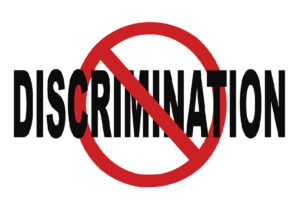 There are many issues that the LGBT+ community faces. LGBT people face discrimination, bullying, and violence in school, work, and in public. One of the most common is violence. According to a study by the National Coalition of Anti-Violence Programs, transgender women are 1.8 times more likely to be killed than cisgender women. This is just one example of the violence that members of the LGBT+ community face every day.
There are many issues that the LGBT+ community faces. LGBT people face discrimination, bullying, and violence in school, work, and in public. One of the most common is violence. According to a study by the National Coalition of Anti-Violence Programs, transgender women are 1.8 times more likely to be killed than cisgender women. This is just one example of the violence that members of the LGBT+ community face every day.
Discrimination
Another issue is discrimination. LGBT+ people often face discrimination in the workplace, at school, and in other areas of their lives. This can lead to a feeling of isolation and can make it difficult to live a normal life.
Lack of Acceptance
Another problem that the LGBT+ community faces is a lack of acceptance from family and friends. Many people feel like they have to hide their true identity from those to who they are closest. This leads to a lack of acceptance from those that they love and can be extremely harmful to the mental health of those in the LGBT+ community.
Bullying
An issue that is particularly relevant for youth in schools is anti-LGBT bullying. According to statistics provided by Dr. Dorothy Espelage of the University of Florida, about 82% of LGBT students report experiencing some form of anti-LGBT bullying. This can have a devastating effect on the mental health and well-being of those students.
Mental health Issues
LGBT+ people are more likely to have mental health issues, such as depression and anxiety. This is because they are expected to be discriminated against, which can lead people in the LGBT+ community to internalize that discrimination. This can cause high levels of stress and self-loathing.
Suicide
unfortunately, suicide is also a common issue within the LGBT+ community. Studies have shown that LGBT youth are four times more likely to attempt suicide than their heterosexual peers. This is especially true for those who have not come out yet or have been rejected by friends and family members after they have come out.
There are many issues that the LGBT+ community faces every day, but it’s important to find a way to fight through them and be proud of who you are. The community is made up of amazing people who have overcome so much discrimination and violence. We should be proud to stand with them and support them in any way we can.
Facts About The LGBT Community
- It is estimated that 1.8% of adults in the US identify as LGB, and 0.7% of adults identify as transgender. (Center for Disease Control)
- The suicide rate among members of the LGBT community who aren’t open about their sexual orientation or gender identity is high. 41% of transgender people have attempted suicide in their lifetimes, compared to 4.6% of the cisgender population. (The Trevor Project)
- Members of the LGBT community are twice as likely to experience a mental health condition than those in the general population. (National Alliance on Mental Illness)
- In countries where being LGBT+ is illegal, up to 70% of LGBT+ people have experienced physical or sexual violence from an intimate partner. (ILGA)
Discrimination Against LGBT+ People in Society

In the US, there is no federal law that prohibits discrimination against LGBT+ people. This means that they can legally be fired from their jobs, denied housing, and refused service in restaurants or other businesses, among other things, simply because of who they are.
- In 33 states, it is legal to fire someone for being LGBT+. (Human Rights Campaign)
- It is legal to evict someone from their home in 32 states due to their sexual orientation or gender identity. (Human Rights Campaign)
- It is legal to deny someone service in restaurants or other businesses in 32 states due to their sexual orientation or gender identity. (Human Rights Campaign)
Importance Of Visibility/Representation for LGBT+
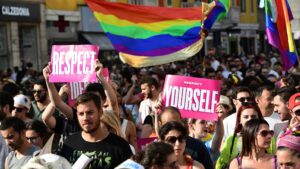
LGBT+ children are 5x more likely to be homeless than their cisgender and heterosexual peers. (The Trevor Project). A study of transgender children found that those who are allowed to live openly as their authentic gender have much better mental health outcomes than those who are forced to keep their gender identity hidden. (University of Washington)
In order for acceptance of the LGBT+ community into the mainstream, there must be visible and positive representation in media. This includes TV shows that feature main characters who are LGBT+, such as “One Day at a Time,” “Brooklyn Nine-Nine,” and “Modern Family.”
How To Support LGBT+?
1. Respect their pronouns: If you hear someone refer to a person as “she,” but that person is wearing clothes or has a hairstyle that goes against your idea of what “she” should look like, don’t question them about it. Just call her and move on.
2. Call out other people when they say something homophobic/transphobic: If someone says something that is offensive to the LGBT+ community, call them out on it. It’s important that everyone in your social circle be aware of what is and isn’t an acceptable language.
3. Educate yourself: There are a lot of misconceptions about the LGBT+ community, and it’s important to have an understanding of what it means to be queer, transgender, etc. Read books, articles, and watch documentaries that focus on LGBT+ issues.
4. Don’t be a passive bystander: If you see someone being attacked or harassed because of their sexuality or gender identity, stand up for them. Don’t just walk away.
5. Use your privilege to fight for equality: You have certain privileges that members of the LGBT+ community don’t. Use them to help bring about change.
6. Listen to what your friends are saying, and ask questions if you do not understand: Your LGBT+ friends are under no obligation to explain their identity or experiences to you. But they may do so because they trust you. Be open to learning, and don’t be defensive if something your friend says makes you uncomfortable.
7. Don’t forget: The most important thing you can do as an ally is to just be there for your LGBT+ friends. Listen to them, support them, and love them for who they are.
The LGBT+ community is one of the most marginalized groups in the world. They face discrimination and violence on a daily basis simply because of who they are. In order for things to change, we need more allies to stand up and fight for equality.
Therapy for LGBT People

Therapy can be very beneficial for LGBT people, especially those who are struggling with depression, anxiety, or self-esteem issues. If you’re a member of the LGBT community and you’re considering therapy, here are some things to keep in mind.
1. It’s important to find a therapist who is accepting of your sexuality or gender identity.
2. You don’t have to come out to your therapist if you’re not ready or if you don’t feel comfortable doing so.
3. You can talk about anything that’s on your mind in therapy–including your experiences as an LGBT person.
4. If you’re not sure whether therapy is right for you, consider talking to a therapist over the phone before scheduling an in-person session.
5. Don’t focus on your sexuality or gender identity when choosing a therapist–focus instead on the therapists’ skills, experience, and philosophy.
6. If you’re in therapy but don’t feel like it’s helping, try meeting with another therapist instead of quitting therapy altogether.
7. Remember that you’re in control of the therapy process, and you can always speak up if you don’t feel comfortable with something your therapist is doing or saying.
The LGBT+ community is one of the most marginalized groups in the world. They face discrimination and violence on a daily basis simply because of who they are. In order for things to change, we need more allies to stand up and fight for equality.
A Word From MantraCare
Life may sometimes be challenging for the LGBT community, but Online LGBTQ Counseling can help. Get experienced LGBTQ therapists at MantraCare: Book a trial LGBTQ therapy session
